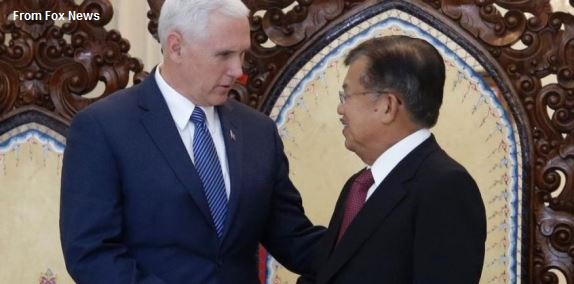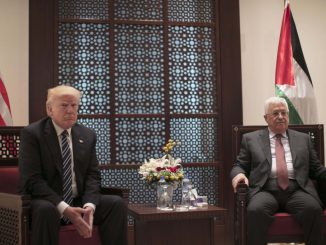
During Vice President Mike Pence’s recent visit to Indonesia he praised Indonesia for its “tradition of modern Islam.” We wish that the Vice President’s remarks reflected reality, but our experience living and working in Indonesia tells us that the Vice President’s optimism that a secular Indonesia will serve as a bulwark against Islamism spreading through Southeast Asia is misplaced and based more on wishful thinking by American policymakers than it is on fact and history.
When the Dutch arrived as colonial conquers, Islam was already firmly established in Sumatra and a Muslim dynasty had just completed the conquest of the Hindu kingdoms of Java, the largest and most populous island in the Indonesian archipelago of some 17,508 islands, of which 922 are permanently inhabited.
The colonial wars that followed slowed, but did not stop the advance of Islam through the islands, which were not a united country, but a series of local fiefdoms and tribal societies.
The Dutch made desultory attempts to Christianize Indonesia with missionaries succeeding to convert the majority on some islands, such as Ambon. The Dutch made use of the Ambonese as policemen and advanced other Christian Indonesians in colonial society, but the vast majority of the native population centered on the populous islands of Java and Sumatra remained Muslim.
Today, about 10 percent of Indonesians are Christian, but that number is presumed to be falling due to the higher birthrate among Muslims and the rapid Islamization of Indonesian society.
In the era after World War II Indonesia became the first post-colonial country to rise out of the Japanese defeat of the European colonial powers in Asia. Indonesians fought a brutal war of liberation against the returning Dutch colonial government, that was only settled with the intervention of the United States which allegedly gave the Dutch an ultimatum that Marshall Plan aid would be cutoff if a peaceful settlement was not reached.
A central figure in that war of liberation was the Muslim Sultan of Yogyakarta. The Sultan of Yogyakarta is a successor to the Mataram sultanate, the last of Java’s Muslim kingdoms to resist Dutch colonial conquest.
Subsequent constitutional governments set-up following the withdrawal of the Dutch have guaranteed freedom of religion, but also established six “official” religions: Islam, Protestantism, Catholicism, Hinduism, Buddhism and Confucianism.


